20 of the easiest title wins in English football history
These sides didn't even have to break a sweat on the way to being crowned champions, winning their respective title at a canter
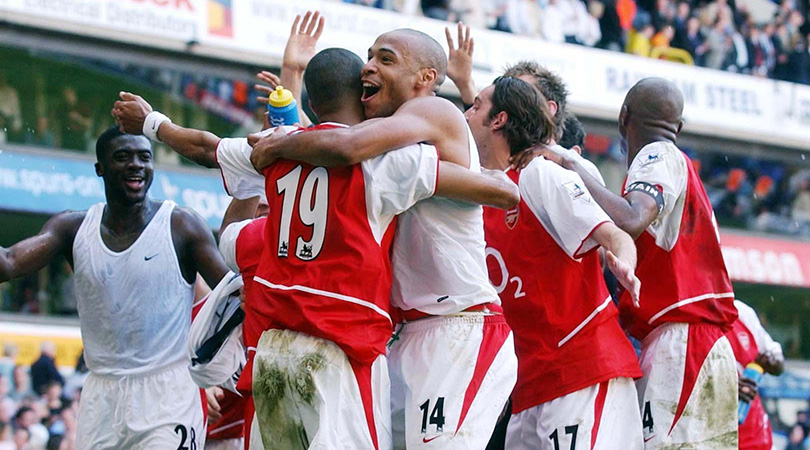
The top tier in English football is often fiercely contested by the greatest teams in the land, but, on occasions, that sentiment doesn't always ring true.
Since the formation of the Football League First Division in 1888, 24 teams have won England's top flight, with some doing so in much more convincing fashion than what would seem conceivable at the start of a campaign.
Often referred to as the most competitive league in the world, some sides have bucked that trend by storming to the title, blasting all opposition out of the water in dominant fashion.
With that being said, FourFourTwo delves into the 20 easiest title wins in English football history from the last 135 years.
Preston North End (1888/89)
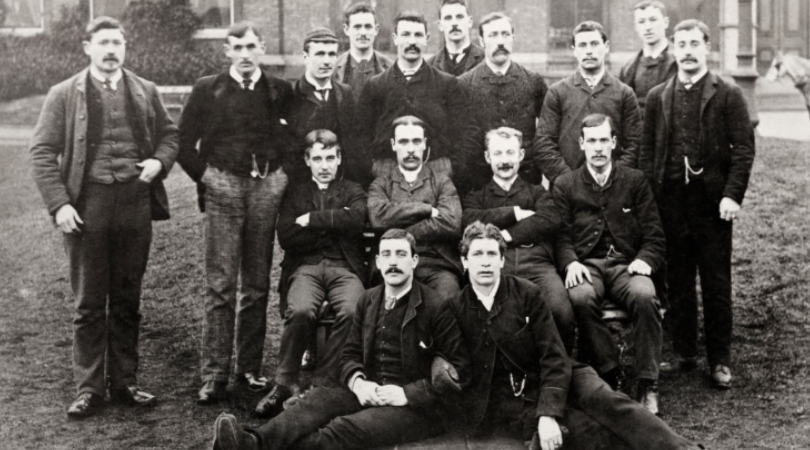
In the First Division’s inaugural season, Preston North End were utterly peerless. They finished 1888/89 undefeated from 22 matches, having scored more and conceded fewer than any other side (Wolves were closest to their tally of 15 goals leaked, on 37) and marched to a league and cup double.
West Bromwich Albion were the only other side to top the table that season... on goal average (that's goals scored divided by goals conceded, mathletes). Oh, and on the opening day of the season. But still, that was the closest anyone came to putting up a challenge against Major William Sudell’s all-conquering (and original) Invincibles.
Sunderland (1892/93)
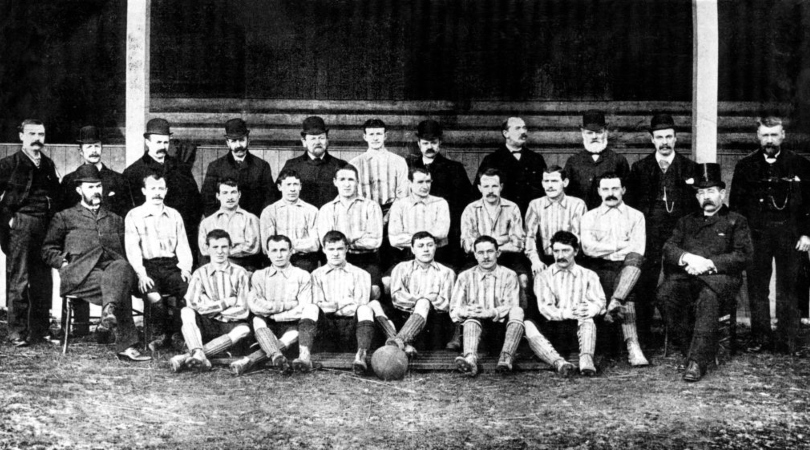
The fifth season of the Football League was a one-sided affair, with Sunderland barely breaking sweat en route to a second consecutive championship crown. The Black Cats won 22 of their 30 matches and were beaten only four times, all away from home.
Get FourFourTwo Newsletter
The best features, fun and footballing quizzes, straight to your inbox every week.
The result was one of the most comfortable title triumphs the top flight has seen, with runners-up Preston finishing 11 points adrift in the days when only two were awarded for a win. Sunderland were unable to make it three in a row in 1894, but they were back on top of the pile 12 months later.
Aston Villa (1896/97)
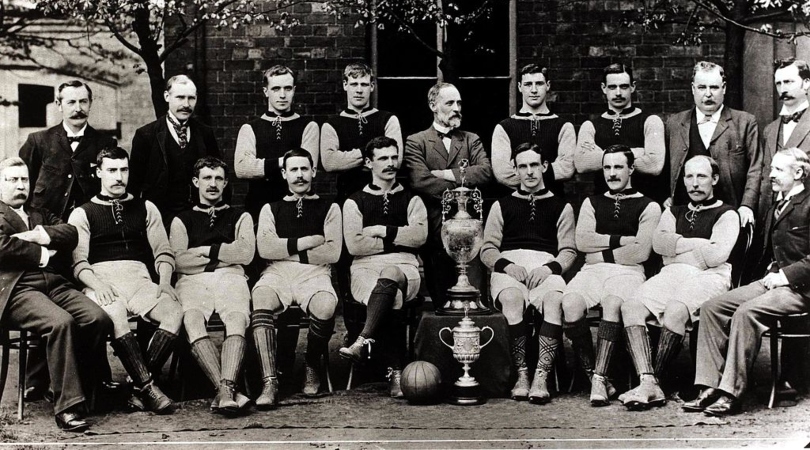
Aston Villa became the second side to win a league and FA Cup pair after losing only four league games all season. It should be pointed out that their eventual winning margin of 11 points (in the days of two for a win) said almost as much about the paucity of the opposition as it did George Ramsay’s innovative take on the game (essentially, he introduced occasionally passing the ball – without him, football could conceivably be 22 rejected rugby players running in straight lines for 90 minutes).
Second-placed Sheffield United won just 13 of their 30 matches.
Manchester United (1907/1908)
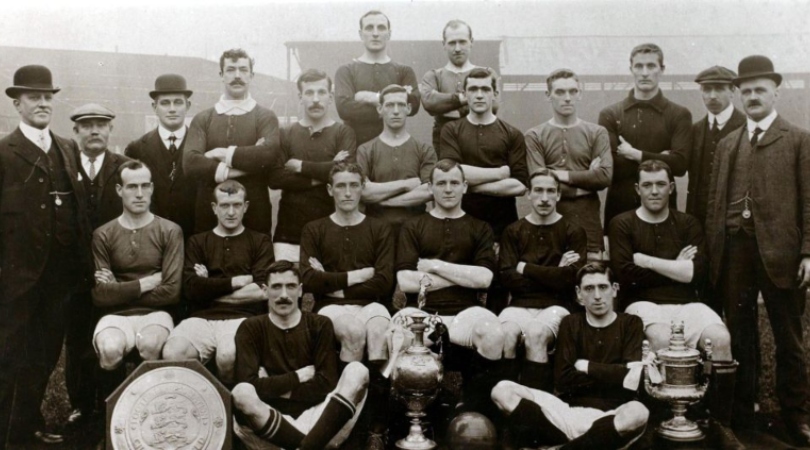
No team has won more English league titles than Manchester United, who went from seven crowns to 20 during the Alex Ferguson era. Their first ever success came in 1908, and it was one of the club’s most impressive: United amassed nine more points than second-placed Aston Villa, who finished as close to 18th place as they did top spot.
Ernest Mangnall’s side came flying out of the traps, winning 13 of their first 14 encounters to establish a sizeable lead at the summit of the standings. They would have finished even further ahead of Villa had they not taken their eye off the ball in the closing weeks, winning just one of their final six games.
Sunderland (1935/36)
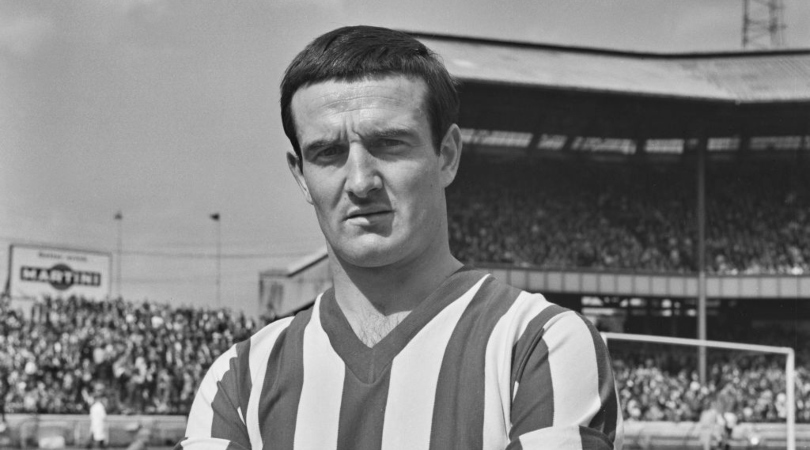
Having dominated the latter years of the 19th century, Sunderland found themselves without a league title since 1913. Johnny Cochrane had been doing his best to arrest the club’s lack of success, steadily building his side after joining as manager in 1928 and leading them to second place in 1934/35. That year they'd always been chasing Arsenal, but the following season the Black Cats built an imposing lead by Christmas that they never looked like surrendering.
It was to prove Sunderland’s last top-flight title to date, but at least they did it in style – winning by eight points over Derby (15 if converted into three points for a win).
Manchester United (1955/56)
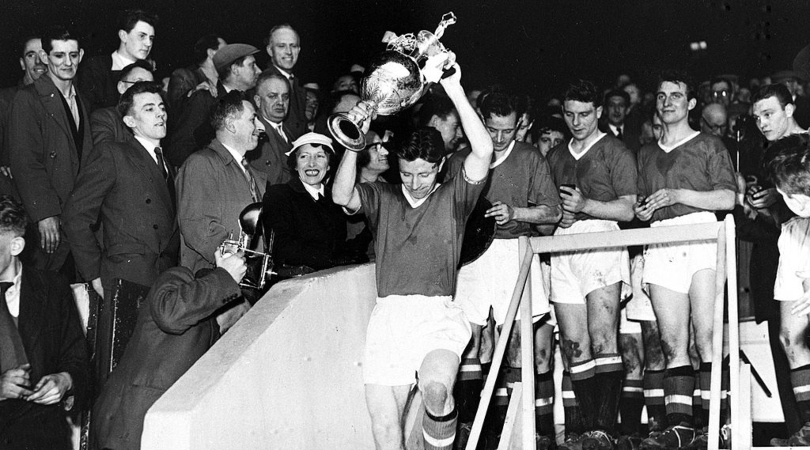
In the three seasons following their 1952 title win, Manchester United finished eighth, fourth and fifth. They returned to their perch in 1956, though, finishing a mammoth 11 points clear of Blackpool and Wolves under the guidance of Matt Busby.
Busby’s young side swept all before them, with Tommy Taylor scoring 25 goals and Duncan Edwards impressing at half-back. Blackpool and Wolves scored more goals than United, whose success was built on their defensive solidity.
Tottenham (1960/61)
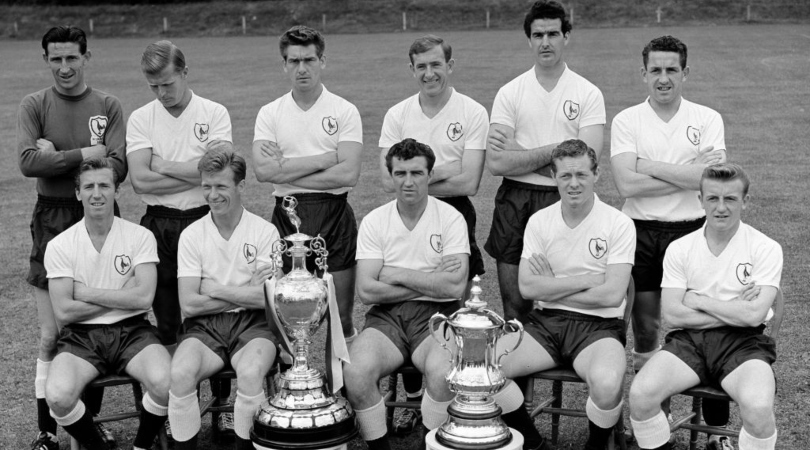
Now this is how you dominate an entire season. Bill Nicholson’s wonderful Tottenham side of Blanchflower, Smith et al ended the title race before it had even begun by winning 15 of their first 16 games, rapidly opening up a gap that the likes of Sheffield Wednesday and Wolverhampton Wanderers never looked likely to bridge. Spurs scored 115 goals and won an exceptional 16 of 21 games away from White Hart Lane.
They also lifted the FA Cup, thus winning the Double for the first time since Aston Villa in 1897.
Everton (1969/70)
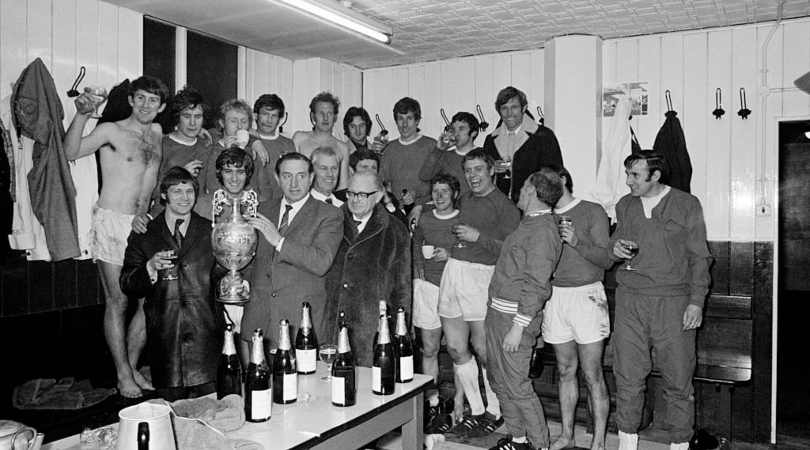
After drawing three successive games in February 1970, Everton found themselves second in the table to Don Revie’s reigning champions Leeds. If the Toffees were going to win a first title in seven years, it looked as though they would have to do it the hard way. It was then that they found their best form of the season, winning eight of their final nine matches, including a famous 2-0 win at Anfield.
At the same time, Leeds's form collapsed and Everton ended up coasting to the title; converting old money into three points for a win would have seen them triumph by a whopping 17 points.
Nottingham Forest (1977/78)
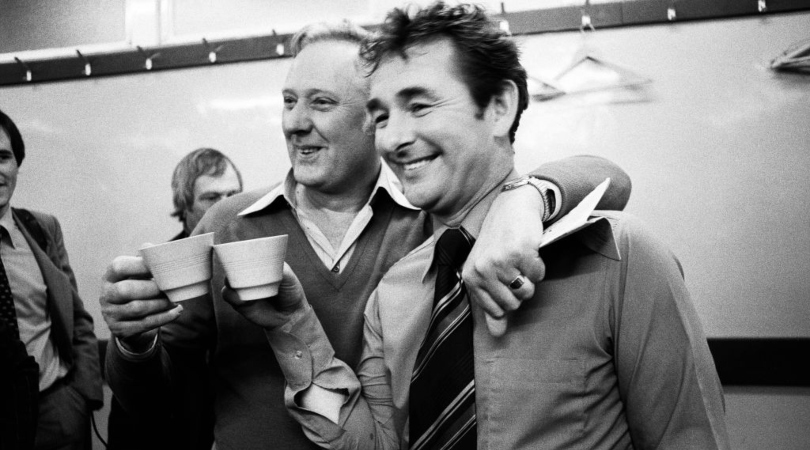
Forest winning their first ever league title was a hugely impressive feat. Winning it in their first season after promotion was exceptional. Winning it by seven points in the days of two for a win, losing only three of 42 games and having topped the table from October onwards was staggering to everyone except Brian Clough, who probably expected it.
Clough had built a team in trademark style, blending journeymen, hungry youngsters and the odd lavish signing like goalkeeper Peter Shilton. That season, the more experienced likes of Bob Paisley's Liverpool couldn't get close.
Liverpool (1978/79)
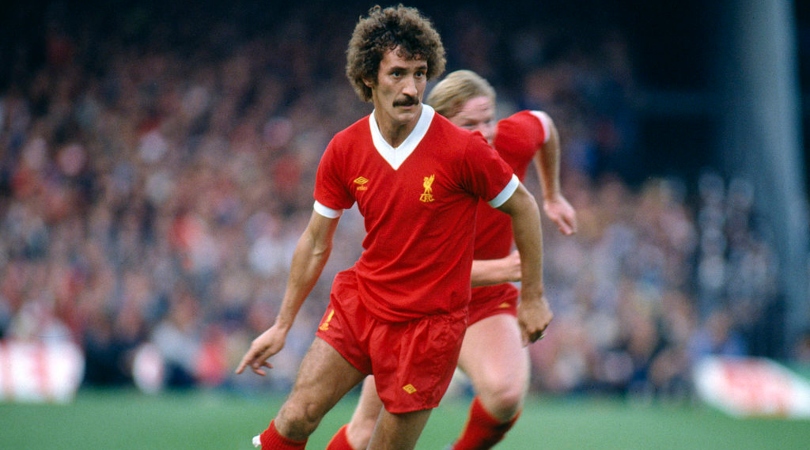
Having missed out by a sizeable margin the previous year, Liverpool enacted their revenge on Nottingham Forest in 1978/79 (in the First Division, that is – Brian Clough’s side knocked the Reds out of the European Cup in an all-English first-round clash).
Liverpool finished with eight more points to their name than runners-up Forest, with their home form key to their success; the Reds won 19 and drew two of their 21 league games at Anfield, conceding a preposterously low four goals along the way.
Liverpool (1982/83)
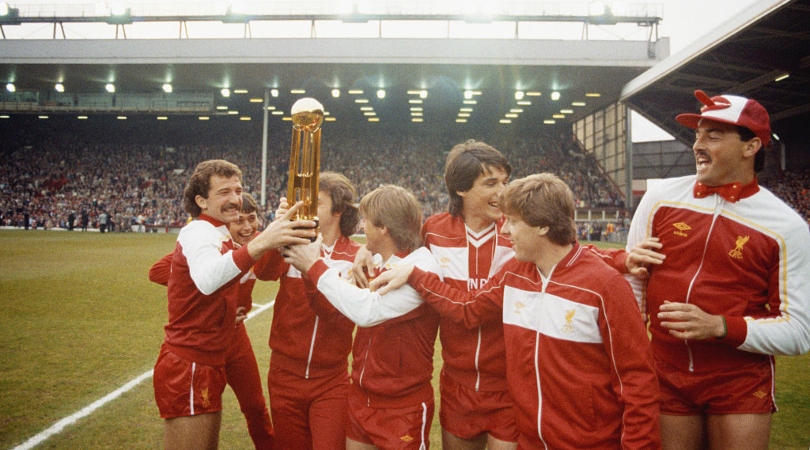
Liverpool finished four points clear of the chasing pack in 1981/82, amassing 87 to Ipswich’s 83. The Reds actually dropped off the following campaign with 82 points, but that was 11 more than second-placed Watford.
Bob Paisley ended his nine-year tenure at Anfield with one of his most comfortable title triumphs, as a team featuring Kenny Dalglish, Ian Rush and Graeme Souness proved far too strong for the rest of the division.
Everton (1984/85)
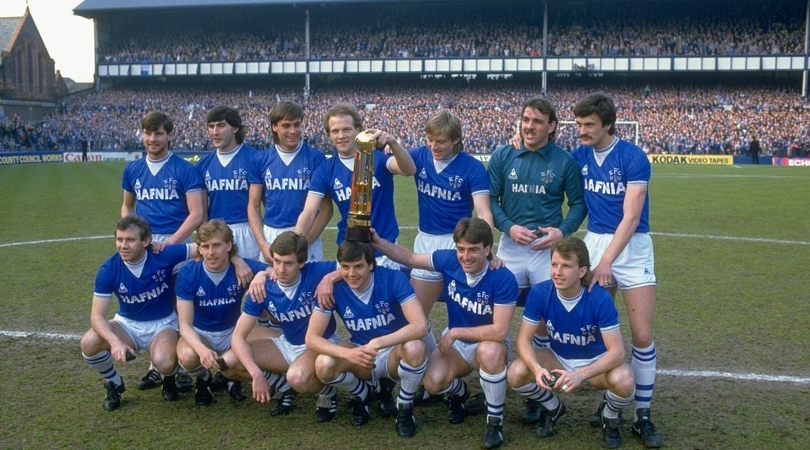
One of the most impressive title wins in English football history started and ended with a whimper. Everton lost their first two matches of 1984/85 to Tottenham and West Brom, and were also beaten by Nottingham Forest, Coventry and Luton in three of their final four outings.
Howard Kendall’s men were brilliant in between, however, winning 27 of 37 games to finish in top spot for the first time in 15 years. Everton ended the campaign on 90 points, 13 more than Liverpool and Tottenham.
Liverpool (1987/88)
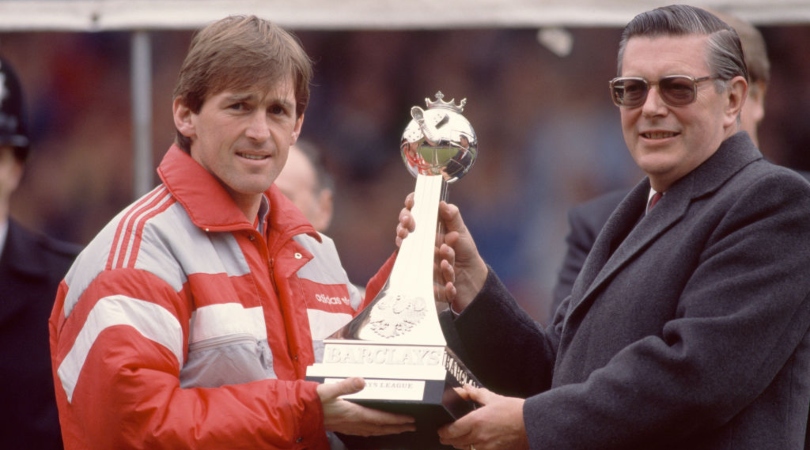
The final table might show that Liverpool won the league by ‘just’ nine points, but this was a season in which the Reds dominated from start to finish. Kenny Dalglish responded to the loss of Ian Rush (to Juventus) by spending big on the likes of John Barnes and Peter Beardsley, and the results were instantaneous. Liverpool were unable to play at Anfield until mid-September due to maintenance work, and this was the only reason it took until October for them to top the table.
They remained unbeaten until Everton beat them in March to prevent their Red neighbours breaking the record for an unbeaten start to a campaign. They lost again two weeks later to Nottingham Forest, but took spectacular revenge by later beating Brian Clough’s side 5-0 in one of the finest performances in English club history. How good were they? Well, the following clip features the 1987/88 Match of the Day Goal of the Season contenders. See if you can spot a theme...
Manchester United (1999/00)
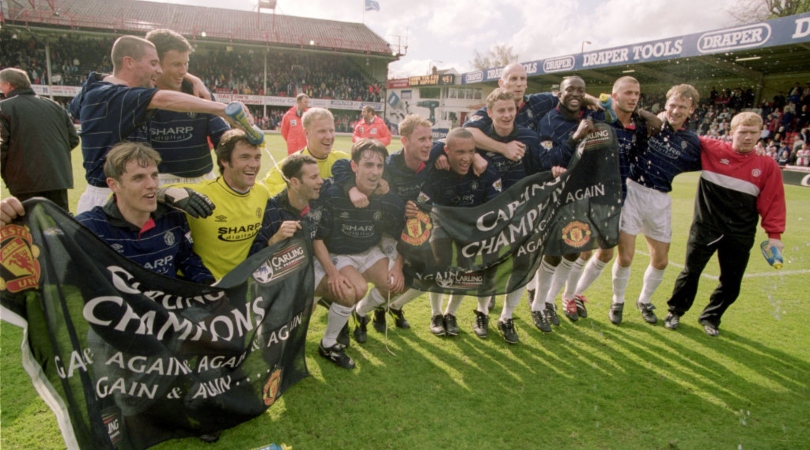
The 1998/99 season remains the most celebrated in Manchester United history, as Alex Ferguson guided his team to an unprecedented treble of Premier League, FA Cup and Champions League. But whereas United finished just a point clear of Arsenal in the title race that year, they ended the 1999/00 campaign with 18 more points than the Gunners.
A 1-0 victory over Middlesbrough in January moved the Red Devils into first place, and they remained there for the remainder of the season, losing just one of their final 18 fixtures to retain their crown with ease.
Arsenal (2003/04)
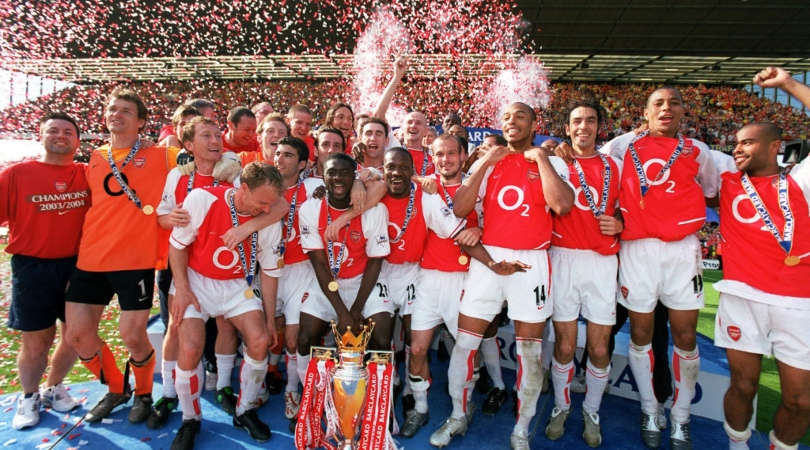
Arsenal became the first side since Preston in 1888/89 to go an entire campaign undefeated – unprecedented in the modern era, and unlikely to be repeated anytime soon. Arsene Wenger's side actually went into 2004 trailing Manchester United, but a mid-January 2-0 win at Aston Villa the day after United had suffered a shock defeat to Wolves moved them triumphantly to the top of the table.
And that's where they stayed, going on to win the title by 11 points. Wenger had created a perfectly balanced side boasting both beauty and guile, with French ace Thierry Henry stroking home 30 league goals in front of a stingy backline that conceded just 26 times all season.
Chelsea (2004/05)
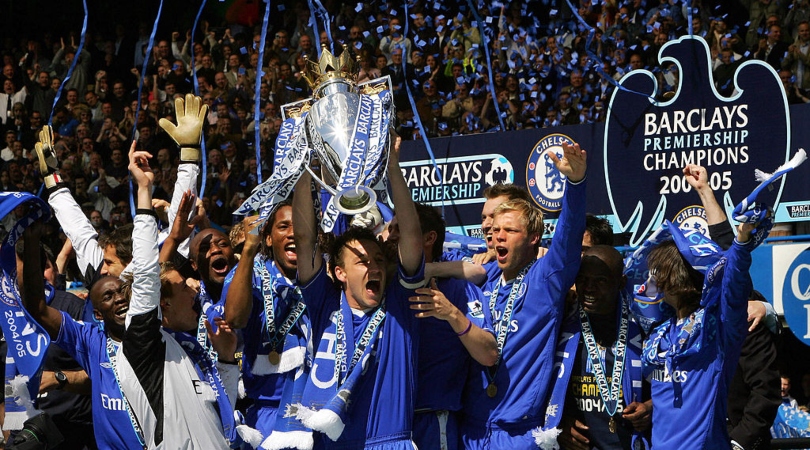
While it was immediately clear that new boss Jose Mourinho wasn't lacking in self-confidence, many still wondered whether he had the experience to back up his boasts. Chelsea promptly beat Manchester United in his first league game in charge, didn’t lose one until October and then avoided defeat for the rest of the season. They amassed a scarcely believable 95 points, and shipped a ludicrous 15 goals.
It was the Blues' first title in 50 years, achieved at Bolton in late April thanks to a Frank Lampard brace. It served only to increase the feeling that the rest of the league might as well pack up and go home.
Man United (2012/13)
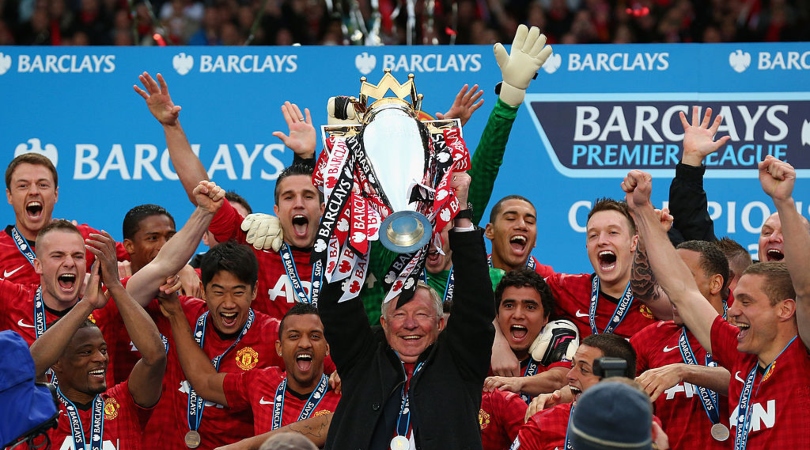
That Alex Ferguson produced a string of all-time great teams is undeniable. This, however, was not one of them – Fergie had built an unbalanced squad lacking much of the bite that characterised his best sides. However, just as he had reacted to the tactical changes brought to the English game by the likes of Wenger and Mourinho, Ferguson had spotted a useful trend: signing someone good at scoring goals helps you win.
The Reds beat Manchester City to Robin van Persie’s signature from Arsenal (an uncharacteristically short-term signing – it’s almost as if he knew he only needed him for one campaign), and a season of uninspired displays nonetheless led to win after win. They snared the league title by 11 points. Given Fergie's relatively limited resources, an argument can be made that this was his greatest ever Old Trafford achievement.
Man City (2017/18)
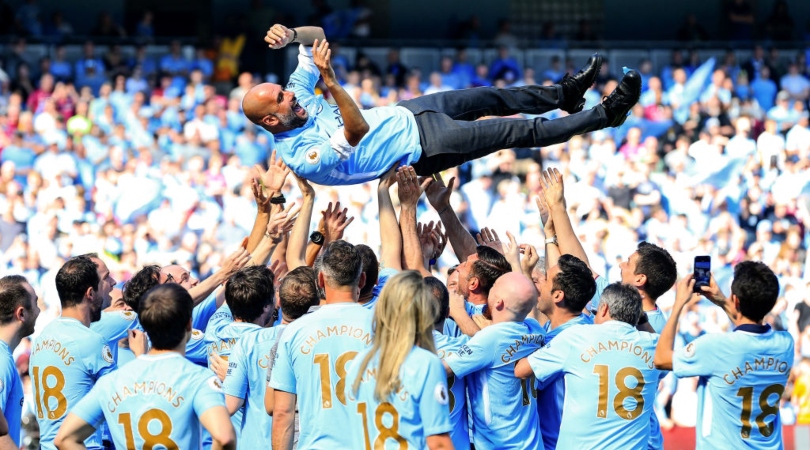
One hundred points: read 'em and weep. All of their rivals did anyway, as Pep Guardiola's all-conquering side swept to an unprecedented points haul and won the title by 19 points (another record). More unmatched highs included: most away points (50), most wins (32), most away wins (16), most goals (106), best goal difference (+79), most consecutive wins (18), most consecutive away wins (11) and the joint-earliest Premier League title win (5 games to spare). And breathe.
Sergio Aguero scored 21 league goals, Raheem Sterling got 18, while Gabriel Jesus and Leroy Sané also struck double figures. Even Fernandinho got five, for crying out loud.
Liverpool (2018/19)
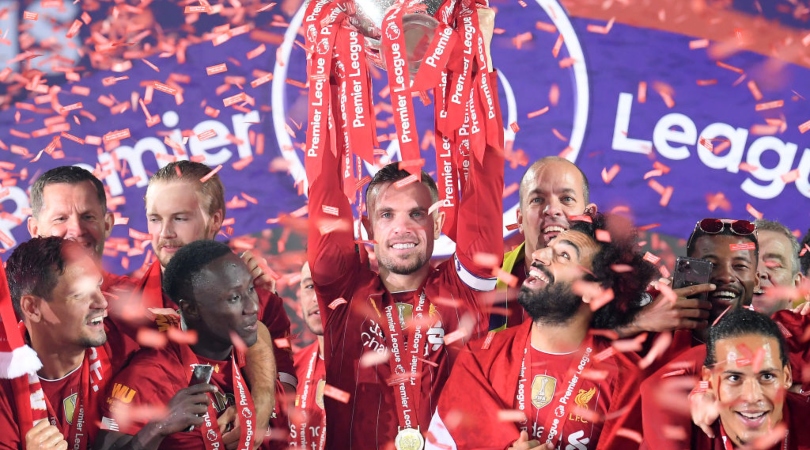
Arguably one of the most imperious and dominant title wins in the history of English football, Liverpool finished the season 18 points ahead of second-place Manchester City and 33 ahead of Manchester United in third.
And all this, despite the 2019/20 season being disrupted by the Covid-19 lockdown in the middle of the season - had football continued, it wouldn't be hard to argue that Liverpool could easily have accumulated well over 100 points.
Indeed, before lockdown hit Liverpool were an astonishing 25 points ahead of Manchester City after 29 games. Out of those matches prior to lockdown, Liverpool had won 27 times. Ridiculous.
When the Premier League resumed three months later, Liverpool even had the opportunity to lose 4-0 to Manchester City, which didn't do anything to stop them from ending the campaign with 99 points in total. Just three losses and three draws is a remarkable return.
Manchester City (2020/21)
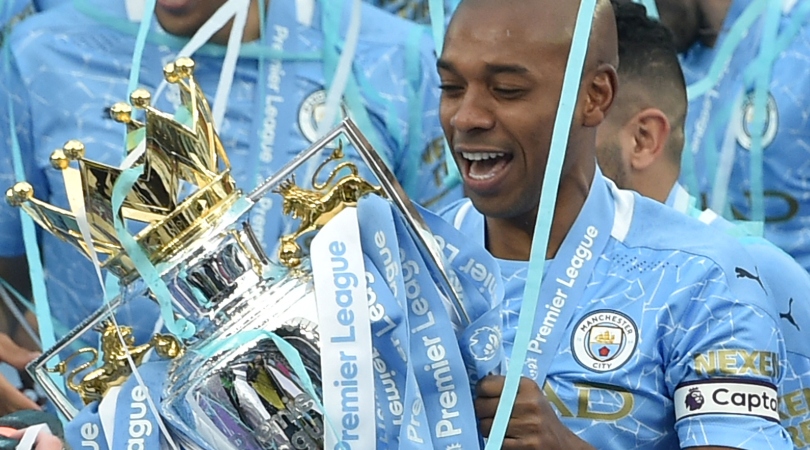
Manchester City were barely challenged for the Premier League in the 2020/21 season, with Manchester United their closest - but vastly inferior - competitors. City finished 12 points clear of their city rivals, cantering to the title with relative ease.
It was also a season of records for the eventual winners. During the season, City achieved a remarkable winning streak of 82 days from December to March, helping them complete the most consecutive wins by a top flight English team in all competitions ever (21) and seeing them go 28 games unbeaten overall. 12 consecutive away league wins is also a record, proving City's dominance in 2020/21.
